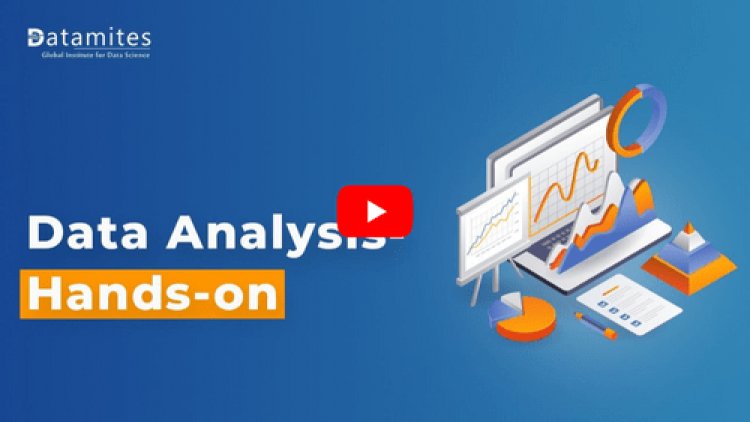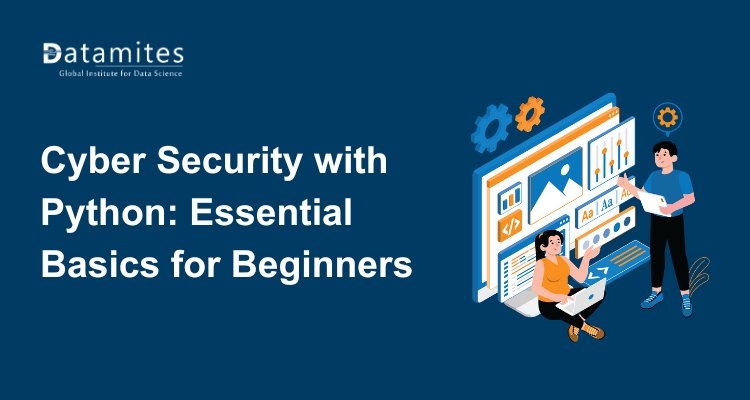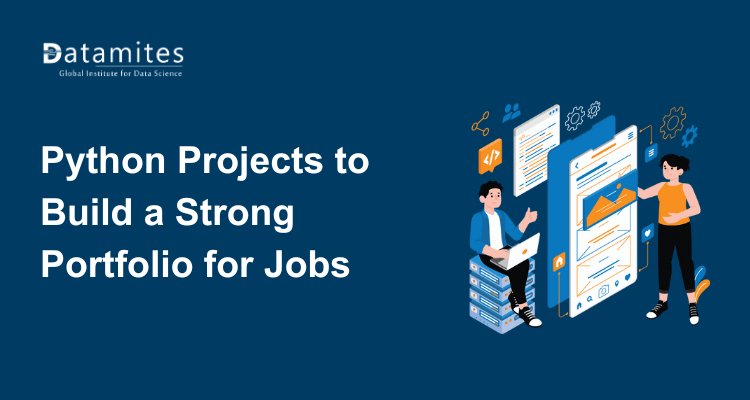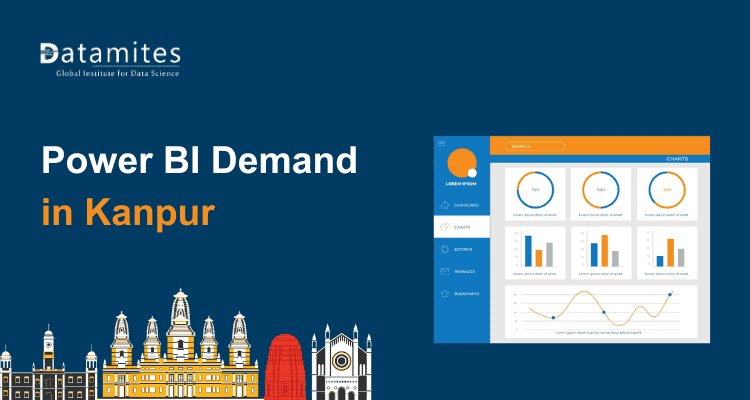How to Become a Data Analyst in Australia?

Becoming a data analyst in Australia can be an exciting and rewarding career choice. With the increasing importance of data-driven decision-making across industries, there is a growing demand for skilled professionals who can analyze and interpret data to drive business insights. As a data analyst, you will have the opportunity to work with large datasets, employ statistical techniques, and use cutting-edge tools and technologies to extract meaningful information.
In this guide, we will outline the steps to help you embark on your journey to becoming a data analyst in Australia, including the necessary skills, education, and career paths to consider. Whether you’re starting from scratch or looking to transition into a data-focused role, this guide will provide you with valuable insights to help you succeed in the field of data analysis in Australia.
What is Data Analytics?
Data analytics is the process of examining, cleaning, transforming, and modeling raw data to uncover meaningful patterns, draw conclusions, and make informed decisions. It involves using various statistical and quantitative techniques to extract valuable insights from data sets, which can then be used to drive business strategies, optimize processes, and solve complex problems.
The Market Research Future report projects that by 2030, the market for data analytics will be worth USD 303.4 billion. Data analytics encompasses a range of methodologies and approaches, including descriptive analytics, which focuses on summarizing and visualizing data to gain a better understanding of past events; predictive analytics, which utilizes historical data to make forecasts and predictions about future outcomes; and prescriptive analytics, which combines historical data and optimization techniques to recommend actions or decisions.
Refer the following articles:
- Data Analytics for the E-commerce Sector
- Data Analytics in Business
- Data Analytics Influencing the Educational Sector
Why a Data Analytics career in the Australia?
A Data Analytics Career in Australia offers enticing salary prospects, making it an attractive choice for professionals in this field. The demand for skilled data analysts is high, leading to competitive salaries. Australia’s robust economy and competitive job market contribute to the higher salary levels compared to many other countries. The salary of a data analyst in Australia ranges from AU$ 90,000 and AU$ 110,000 per year according to a Seek report.
The data analytics industry in Australia is experiencing significant growth, driven by businesses recognizing the value of data-driven decision-making. This growth creates a skills shortage, resulting in companies offering higher salaries to attract and retain talented professionals. In addition to attractive salaries, a Data Analytics career in Australia provides opportunities for career progression and advancement. With experience and expertise, professionals can move into leadership positions, which come with higher salaries and increased responsibilities.
In Australia, two major cities namely Melbourne and Sydney, get the high-paying salary based on their educational talent, work experience and skills. The salary of a data analyst in Melbourne ranges from AU$ 90,000 per year according to a Glassdoor report.
The salary of a data analyst in Sydney ranges from AU$ 93,000 per year according to a Glassdoor report.
Read the following articles:
- Become a Data Analyst in South Africa
- Become a Data Analyst in India
- Become a Data Analyst in Canada
Why is Data Analytics in demand in Australia?
The Australia Data Analytics Market is projected to grow at a CAGR of 20% between 2020 and 2025, according to the TechSci Research report titled “Australia Data Analytics Market By component, deployment, organisation size, end-user sector, geographic region, competition, forecast, and opportunities. Data analytics is experiencing a surge in demand across industries in Australia due to its transformative impact on decision-making, and customer insights.
Here’s why data analytics is particularly sought after in key sectors:
- Healthcare: The healthcare industry in Australia is increasingly leveraging data analytics to improve patient outcomes, optimize resource allocation, and enhance operational efficiency.
- Finance: The finance sector relies heavily on data analytics to drive strategic decision-making, risk management, and regulatory compliance. Financial institutions in Australia utilize data analytics to assess creditworthiness, detect fraudulent activities, and optimize investment portfolios.
- Retail: In the retail industry, data analytics is essential for understanding consumer behaviour, optimizing supply chain management, and personalizing marketing strategies. Australian retailers leverage data analytics to analyze sales patterns, customer preferences, and demographic data to make informed decisions.
- Education: Data analytics is becoming increasingly important in the education sector in Australia. Educational institutions use data analytics to assess student performance, identify learning gaps, and personalize learning experiences.
- Manufacturing: The manufacturing industry in Australia benefits from data analytics by optimizing production processes, improving supply chain management, and enhancing product quality.
In these industries, data analytics empowers organizations to extract actionable insights from vast amounts of data, enabling data-driven decision-making, improving efficiency, and gaining a competitive advantage. The growing demand for skilled data analysts in Australia reflects the recognition of the value that data analytics brings to businesses across diverse sectors.
How to Become a Data Analyst in Australia?
To become a data analyst in Australia, you can follow these general steps:
Education and Qualifications:
- Earn a bachelor’s degree in a relevant field such as mathematics, statistics, computer science, or economics. Some universities in Australia offer specific data science or analytics programs.
- Consider pursuing a master’s degree or postgraduate diploma in data analytics or a related field to enhance your skills and knowledge.
Gain Relevant Skills and Knowledge:
- Learn programming languages like Python or R that are frequently used for data analysis.
- Acquire a solid understanding of statistical analysis, data visualization, and data manipulation techniques.
- Learn SQL (Structured Query Language) for working with databases.
Build Practical Experience:
- Look for internships or entry-level positions in data analysis to gain hands-on experience. This can be through internships, projects, or part-time jobs.
- Join relevant data science or analytics communities and participate in data analysis competitions or hackathons to showcase your skills and learn from others.
Networking and Professional Development:
- Attend industry events, conferences, and workshops related to data analysis to expand your professional network and stay updated with industry trends.
- Join professional associations or groups like the Institute of Analytics Professionals of Australia (IAPA) to access networking opportunities and resources.
Job Search
- Utilize online job portals, professional networking platforms, and company websites to search for data analyst job openings.
- Tailor your resume and cover letter to highlight relevant skills and experiences.
- Prepare for interviews by practising technical questions, and data analysis scenarios, and showcasing your problem-solving abilities.
Continuous Learning:
- Data analysis is a rapidly evolving field, so make sure to stay updated with new technologies, techniques, and industry developments.
- Consider pursuing additional certifications or short courses to enhance your knowledge and stand out in the job market.
Live-project internship
- Internships on active projects offer data analytics experts the chance to obtain practical experience.
- Internships with live projects fill the gap between academic learning and real-world application.
Certifications
- Validates proficiency and knowledge in the field.
- Demonstrates a dedication to continuing professional development and keeping up with best practises in the field.
- Certifications from reputable organizations like Microsoft or IBM hold particular value in the industry.
Resume Preparation
- Highlighting relevant skills and experience.
- Including expertise in Tableau, Power BI, Python, R, and SQL.
- Emphasis on previous work in projects including data analysis, statistical modelling, and data visualisation.
- Showcasing a strong understanding of data querying, programming languages, and analytical
Remember that the specific requirements and preferences may vary among employers, so it’s essential to research and understands the expectations of the industry and organizations you are targeting.
Refer the following articles:
- Become a Data Analyst in United States?
- Become a Data Analyst in Thailand
- Become a Data Analyst in Malaysia
How is DataMites providing Certified Data Analyst Course in Australia?
DataMites is a globally renowned training institute that offers courses like Python, Data Science, Artificial Intelligence, Deep Learning and Data Analytics Training in Australia. The Certified Data Analyst Course in Australia is a standout program offering students the chance to acquire comprehensive knowledge and practical skills in the field of data analytics. Upon successful completion of the DataMites courses, students are awarded internationally recognized IABAC certification, as the program is accredited by IABAC.
Here’s a general outline of how such a course may be structured:
- Ashok Veda and Faculty: DataMites is privileged to have Ashok Veda, a distinguished AI expert, on its team. With 19 years of experience in analytics and data science across various industries, including finance, healthcare, and technology, he has consistently delivered exceptional results and promoted innovation. As a respected faculty member at DataMites, Ashok Veda leads projects that employ advanced Artificial Intelligence techniques to uncover valuable insights and tackle complex business problems.
- Course Overview: The primary objective of the Certified Data Analyst Course is to equip participants with the essential skills and knowledge required for proficient data analysis and interpretation. The course encompasses a wide range of concepts, tools, and techniques utilized in the field of data analysis.
- Flexible Schedule: DataMites offers flexible training alternatives for students that offers Online Data Analytics Training in Australia which is specifically designed for the region. This allows students to select the learning method that best suits their needs and preferences.
- Project and Internship opportunities: At DataMites, students are offered valuable project and internship opportunities that enable them to acquire practical experience and apply their skills in real-world situations. These hands-on experiences play a crucial role in deepening their understanding of data analytics as they work on practical projects and tackle industry-specific challenges.
- Course Curriculum: DataMites or the training provider would design a comprehensive curriculum covering various aspects of data analysis. This could include topics such as data visualization, statistical analysis, predictive modeling, data mining, machine learning, and more.
- Certification: Upon successful completion of the course requirements, students receive a Data Analytics Certification in Australia. This certification demonstrates their understanding of data analysis concepts and their ability to apply them effectively.
- Industry-relevant Tools- DataMites offers its students a range of industry-specific tools through different channels to ensure they gain relevant skills. These resources include licensed software and widely used tools like Excel, SQL, Tableau, Power BI, and others. Additionally, DataMites emphasises hands-on training by including actual projects and real-world activities. This approach allows students to apply these tools in practical scenarios, enhancing their proficiency and practical experience. By combining tool accessibility and practical applications, DataMites ensures that students are thoroughly equipped with the essential tools and skills needed in the industry.
- Affordable fees– DataMites provides budget-friendly fees for its data analytics courses, ensuring that quality education in the field is accessible to a wide range of individuals. They offer cost-effective options without compromising the content or learning experience. The Certified Data Analyst Training Fee in Australia ranges between AU$ 749 to AU$ 1970 offering students a range of affordable options.
To obtain accurate and up-to-date information about the specific certified data analyst course offered by DataMites in Australia, I recommend visiting their official website or contacting them directly.
Certified Data Analyst Course

Summary
To become a data analyst in Australia, one should possess a bachelor’s or master’s degree in a relevant field, such as mathematics, statistics, or computer science. It is also important to gain practical experience through internships, entry-level jobs, or freelance projects. Acquiring relevant certifications and developing expertise in tools such as SQL, Excel, Python, and R can be beneficial. Continuous learning and staying updated with the latest developments in the field are critical to building a successful career as a data analyst in Australia. Additionally, enrolling in a reputable data analytics training institute in Australia and completing a comprehensive data analytics training course in Australia can provide valuable knowledge and skills.
Data Analyst vs Data Engineer

Learn Data Analysis with the Help of Python






